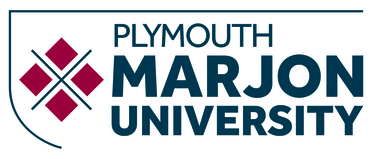Accelerators and Liminality: a rite of passage for aspirant entrepreneurs
Scully, Declan and Meng, Liying (2015) Accelerators and Liminality: a rite of passage for aspirant entrepreneurs. In: Institute of Small Business and Entrepreneurship Conference 2015, 11 - 12 November, Glasgow.
|
Text
Accelerators and Liminality. a rite of passage for aspirant entrepreneurs_Meng.pdf Restricted to Registered users only Download (453kB) | Request a copy |
Abstract
Objectives Accelerators have emerged as an increasingly popular means of supporting entrepreneurial activity with approximately 250 currently operating in both North America and Europe (Salidado, 2013) and there is evidence that survivorship is significantly enhanced when firms have been supported by an accelerator (Fox, 2014). Most accelerators follow a common business model in which there is competitive entry to a program providing support for a limited period (typically three months) to early-stage businesses during which time intensive mentoring and support is given and seed capital is invested in the young business. Using a theoretical framework based on liminality (Turner, 1969), participants in accelerator programs are depicted as under-going a rite of passage. Studies in liminality suggest that certain processes follow a particular ritualistic pattern in which participants divest themselves of former identities and new identities are formed. During liminal processes, guidance is normally provided to the person: in accelerators this role is taken by mentors who will assist in the formation of the new identity. Studies in liminality point to the importance of threshold concepts (Meyer & Land, 2005) which are types of knowledge that a participant is expected to acquire prior to completion. Using the lens of liminality, this paper examines identity formation by looking at the manner in which it changes during the accelerator support period. What changes occur and what induces changes of identity? The role of the mentor within accelerators is also considered: what is the nature of their relationship with participants and how do they assist in this rite of passage? Prior Work Accelerators are a relatively recent phenomenon and it appears that they have not been examined in peer review journals. Approach A qualitative design, employing secondary sources, will be employed to illuminate the underlying liminal processes existing within accelerators. Results This is a work in progress Implications Accelerators represent an under-researched phenomenon and by using the lens of liminality, the process of intense change can be better understood. Value Accelerators play a crucial role in developing entrepreneurial activity: this study provides value by explaining the effects of Accelerators on participants in terms of identity formation, the role of mentoring and the expectations about acquired knowledge.
| Item Type: | Conference or Workshop Item (Paper) |
|---|---|
| Keywords: | Entrepreneurship, Liminality, Start-ups, Mentoring, Threshold Concepts |
| Depositing User: | Ms Raisa Burton |
| Date Deposited: | 05 Feb 2020 15:06 |
| Last Modified: | 24 Jul 2020 15:13 |
| URI: | https://marjon.repository.guildhe.ac.uk/id/eprint/17527 |
Actions (login required)
 |
Edit Item |

